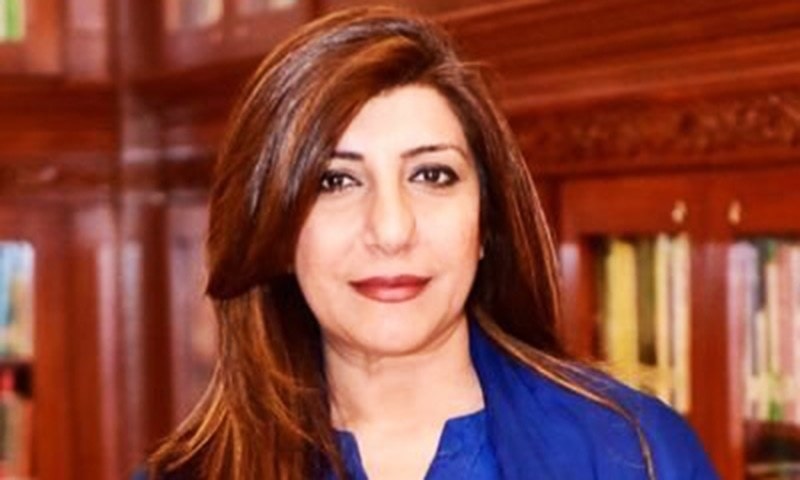ISLAMABAD: The Foreign Office on Thursday insisted that the Pakistan government’s efforts for de-escalation in the Persian Gulf remain relevant despite US moves to contain the fallout of the latest flare-up.
“There is always room for engagement and interaction within the region and beyond. The foreign minister’s visit will be aimed towards this,” FO spokesperson Aisha Farooqui said at the weekly media briefing.
Prime Minister Imran Khan had a day earlier announced that he had instructed Foreign Minister Shah Mehmood Qureshi to visit Tehran, Riyadh and Washington for meeting his counterparts with the message that Pakistan was ready for a role for peacemaking and would not take part in any conflict.
PM Khan, who had initially avoided commenting on the assassination of Iranian commander Maj Gen Qassem Soleimani in an American airstrike, spoke about the peace mission after Iran conducted retaliatory strikes against US bases in Anbar and Erbil in the wee hours of Wednesday. President Trump at his presser on the missile strikes announced fresh sanctions against Iran, but importantly signalled de-escalation.
Meanwhile, in a letter to the UN Security Council, US envoy Kelly Craft offered unconditional negotiations to Iran for avoiding further “endangerment of peace and stability and escalation”.
Qureshi discusses situation with Russian counterpart
The FO spokesperson too acknowledged the indications from the US and said Pakistan welcomes them. “We heard the comprehensive statement of President Trump last night. We believe that there is an indication that peace must be given a chance and de-escalation of tensions should take place,” she maintained.
Following these developments questions arose if the planned peace mission was relevant anymore.
FM Qureshi would at the earliest not be departing on the mission before Sunday.
The foreign minister, meanwhile, spoke to his Russian counterpart Sergey Lavrov over the phone. An FO statement said that he conveyed Pakistan’s principled stance that it would stay out of the conflict by not allowing the use of its soil against Iran.
Mr Qureshi, speaking at a meeting of the NA Foreign Affairs Committee, said he was reaching out to foreign ministers of “important countries” to ease tensions.
Ms Farooqui said Pakistan gets this peace role from its geography, history, strong external relationships, and as a member of the international community.
“Pakistan is a very important player in the current situation, especially in the light of the recent developments in the Middle East. Based on these considerations, it is very important for Pakistan to contribute towards the goal of ensuring peace and security in the region,” she said.
When asked about the US leaders speaking directly to Army Chief Gen Qamar Bajwa on the Persian Gulf crisis instead of contacting their counterparts here [Foreign Office], the spokesperson gave an indirect response recalling longstanding and diverse character of bilateral ties. “The contacts and exchanges between the leaderships of the two countries take place at multiple levels. There is not one channel, but there are multiple channels of interaction between our leaders. The focus in all these multiple interactions remains on building a stronger relationship and advancing cooperation in areas of mutual interest. All these questions should be seen in the paradigm of what I said,” she said.
Ms Farooqui reiterated Pakistan’s support for Joint Comprehensive Plan of Action (JCPOA), more commonly referred to Iran nuclear deal. The US had walked away from the deal in 2018. Tehran too has after Gen Soleimani’s assassination decided to end adherence to the commitments under the deal.
“We hope that all parties to the JCPOA will be able to take effective measures to resolve all outstanding issues through consultations within the framework provided in the agreement,” she said.
APP adds: The spokesperson said Mr Qureshi during all his interactions with counterparts had emphasised that the situation must not affect the peace process in Afghanistan.
Mr Farooqui termed the US decision to revive International Military Education and Training Programme for Pakistan “one more step in right direction” and said it was important for both countries to work for a broad-based and enduring relationship.
The spokesperson confirmed that Prime Minister Imran Khan would pay a visit to Malaysia in near future and stressed that “Pakistan remains engaged closely with the brotherly country”.
She said Turkish president Recep Tayyip Erdogan would be visiting Pakistan in February, for which dates were being finalised. On reports of India arranging a visit of envoys to occupied Kashmir, she said Pakistan expected the exercise to be “open and transparent” allowing free interaction of diplomats with local Kashmiris and also the Hurriyat leaders.
Published in Dawn, January 10th, 2020














































